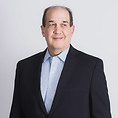House Ethics Committee Closes Fundraising Probes, Avoids Use of Any "Bright-Line Test" or "Fixed Factors"
On January 26, 2011, the House Ethics Committee announced it will "take no further action" on its inquiries into congressional action on the "Wall Street Reform and Consumer Protection Act of 2009" (H.R. 4173) and campaign fundraising activity by seven named Members of Congress. The Office of Congressional Ethics (OCE) had referred its inquiries on these seven Members to the Ethics Committee, alleging with respect to three of the Members-Rep. John Campbell (R-CA), Rep. Joseph Crowley (D-NY) and Rep. Tom Price (R-GA)-that their fundraising activity around the time of passage of H.R. 4173 in December 2009 merited further action by the Ethics Committee. (The OCE referred the remaining inquiries to the Ethics Committee with the recommendation to dismiss.) The OCE based its preliminary findings on the fact that the fundraising activities of Congressmen Campbell, Crowley and Price created the appearance of special treatment or access for campaign donors and the appearance of improper linkage between campaign contributions and an official act.
In announcing its determination to take no further action on any of these OCE fundraising inquiry referrals, the Ethics Committee adopted and issued publicly the report of its staff, which concluded that
[T]he general characteristics of each Member's fundraising events exhibited no appearances of special access for attendees to the Members in their official capacity. Rather, they were no different than any routine fundraising event held by any other House Member. Given the foregoing, it is also Committee staff's conclusion that any correlation in timing between the Members' fundraising events cited by OCE and official acts regarding H.R. 4173, including the vote on H.R. 4173, would be happenstance. This is especially so given that the record showed that the fundraising events were scheduled when the timing of floor action on H.R. 4173 was in flux and uncertain.
In each of the three inquiries, the Ethics Committee found that "the overall record demonstrated that there were no appearances of impropriety between campaign activity and official acts." The Committee based this overall conclusion on three factors. First, regarding the three Members under inquiry, the Committee found that "each Member's official positions on financial regulatory reform were well-established long before any fundraising event at issue and remained constant through the ultimate House vote on H.R. 4173 . . . ." Second, "all amendments that the three Members offered were the product of their impartial judgments on the merits of legislative proposals, not requests from campaign donors"; moreover, the Committee noted "[n]one of the amendments offered by the Members [on H.R. 4173] actually received a vote on the House floor." Third, "each Member maintained strict separation between fundraising activities and legislative activities by hiring a professional fundraising consultant."
Similarly, the Ethics Committee concluded with respect to each of the three inquiries that "the overall record demonstrated that there were no appearances of impropriety between campaign activity and special access to any Member in his official capacity." Again, the Committee relied on three factors in reaching this conclusion. First, during the legislative process on H.R. 4173, none of the three Members exercised substantial influence; indeed, the Committee found that "[t]heir influence during the legislative process was typical of that with regard to any Member regarding major legislation." Second, the Committee found that "each Member maintained strict separation between fundraising activities and legislative activities by using a professional fundraising consultant," which, in turn, accounted for the following additional findings by the Committee: the fundraising events at issue were typically scheduled many months in advance, and without any knowledge of when legislative activities on H.R. 4173 would occur; none of the Members' legislative staff had any material role in planning any of the fundraising events; and, generally, the Members themselves "did not even know about fundraising events until the day before or of the event."
The third basis stated by the Ethics Committee for its determination "that there were no appearances of impropriety between campaign activity and special access to any Member in his official capacity" was that-in contrast to the OCE-the Committee did not find any actionable parallel between the conduct at issue in the matters involving Representatives Campbell, Crowley or Price and the conduct for which it had admonished then-Majority Leader Tom DeLay in 2004 in connection, in part, with his participation in an energy industry fundraiser. This is the crux of the disagreement between the OCE and the Ethics Committee on the Campbell, Crowley and Price matters. In its report, the Ethics Committee described the OCE as attempting to convert the Committee's context-specific conclusions in the DeLay matter as to what constitutes impermissible linkage between fundraising and official access/action into "a bright-line test using a set of fixed factors," including the timing of fundraising activity vis-à-vis legislative action, the role of the Member in the legislation at issue, and the presence of legislative staff and limited other attendees at the fundraising event. The Ethics Committee found the OCE conclusions to be "based upon a mechanical application of these factors without full consideration of the relevant facts and circumstances." For its part, the Committee noted that "there are material and substantial distinctions between the circumstances underpinning the Committee's ruling in the DeLay matter" and the Campbell, Crowley and Price matters.
Given the persistent and very public airing of differences between the OCE and the Ethics Committee throughout their brief history together, it remains uncertain whether the OCE-as it should-will accept as authoritative the Ethics Committee's flexible and context-dependent interpretation and application of the standards relevant to the relationship between fundraising by Members and official access or action. If the OCE proceeds as if it is its own independent interpreter of congressional standards of conduct, prospective donors-individuals and organizations-could still get caught in the crossfire.


